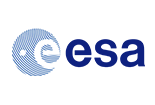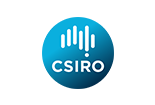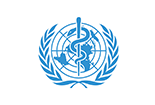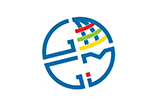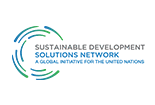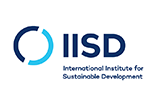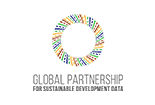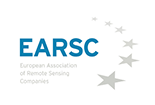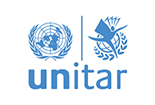Integration of Earth Observations and National Statistics for the SDGs in Colombia
Several national agencies in Colombia are working to integrate national statistics, household surveys and routine administrative data with Earth observations, geospatial information, and other data to monitor and implement the SDGs at country level.

Colombia has successfully implemented several projects that demonstrate the value of using Earth observations (EO) to monitor SDGs. The National Administrative Department of Statistics in Colombia (DANE) conducted a successful pilot project using EO to examine SDG 11, Indicator 11.3.1, Ratio of land consumption to population growth. DANE developed a method that incorporates freely available Landsat images with population data to investigate the relationship between land consumption and population growth in the Barranquilla Metropolitan Area (MA) in northern Colombia. Study results indicated that in some areas within the Barranquilla MA, the consumption of land was greater than the population growth, meaning the population could have been consuming land needed for agriculture and ecosystem services. In other areas, however, the reverse situation occurred, potentially indicating that land use was more efficient. (For additional details about this pilot study, please access DANE’s report here.)
In addition, the Colombian Institute of Hydrology, Meteorology and Environmental Studies (IDEAM) has been using satellite data in their national forest monitoring efforts in support of the nationally led, Reducing Emissions from Deforestation and Forest Degradation (REDD+) effort. Further, IDEAM and the University of Andes have made considerable progress in learning how to create and use data cubes—time series stacks of analysis-ready data. In collaboration with the Committee on Earth Observation Satellites (CEOS) Systems Engineering Office (SEO), a country-level Landsat Data Cube (consisting of 25,000 scenes) was completed in December, 2016.
These efforts demonstrate the value, and potential contributions of, satellite-based EO data along with other data types to monitor and implement the SDGs. Colombia is now working with EO4SDG and partners such as the Global Partnership for Sustainable Development Data (GPSDD) to identify ways to use EO to advance work on these topics and determine other areas of interest where incorporation of EO data could be beneficial. Additionally, DANE is interested in further exploring how EO can support the country’s upcoming census, including the need for official, reliable statistics and information about indigenous populations – their number, location, demographics, and agricultural activity, among other items.
Major Achievements, Partnerships and Future Plans
March 30, 2017: Workshop in Bogota, Colombia: Towards Integration of National Statistics and Earth Observations for SDG Monitoring: DANE, GPSDD, and EO4SDG convened this workshop to bring together key agencies and stakeholders in Colombia that could benefit from the application of EO data to the SDGs. Over 30 attendees participated in the workshop to report on successes (including the efforts described above), share techniques to incorporate EO in SDG monitoring and reporting, and identify areas of potential collaboration. Workshop participants identified several SDGs where EO methods could be applied, including SDG 6, Clean Water and Sanitation; SDG 11, Sustainable Cities and Communities; and SDG 15, Life on Land. Attendees are currently in the process of developing a collaborative work plan to expand ongoing efforts by DANE, which make use of EO and statistical data to address aspects of SDG 11 (Indicators 11.3.1 and 11.7.1), and by IDEAM, which focus on forest cover change and land and soil degradation aspects of SDG 15 (Indicators 15.1.1, 15.2.1, 15.3.1, and 15.4.2), among other SDG topics.
July 12, 2017: Learning, Training, and Practice Session, High Level Political Forum, 2017: Applying Earth Observation Data for the SDGs: GPSDD, in partnership with NASA and GEO, hosted a participatory and consultative stakeholder training event as part of the SDGs Learning, Training and Practice 2017 session at the United Nation’s High Level Political Forum on Sustainable Development. Attendees included international representatives from governments, civil society, research organizations, and academia. DANE provided an overview of Colombia’s SDG monitoring activities, and shared examples of efforts where EO are already being used for, or have the potential to contribute to, addressing data needs and achieving specific SDG Targets and Indicators. Key areas of focus included: SDG 1, End poverty in all its forms everywhere; SDG 2, End hunger, achieve food security and improved nutrition and promote sustainable agriculture; and SDG 14, Conserve and sustainably use the oceans, seas and marine resources for sustainable development.
July 13, 2017: Brown Bag Talk at NASA Headquarters: Earth Observations in Service of the Sustainable Development Goals: Country Experiences: Representatives from the National Administrative Department of Statistics in Colombia (DANE); the Kenyan Ministry of Agriculture, Livestock and Fisheries; and the GPSDD provided an overview of efforts to track, monitor, and report on the SDGs, at national level. Participants shared successes, challenges, and lessons learned, with a view toward accelerating the implementation of the 2030 Agenda. Subsequent discussions among country representatives and EO experts focused on how countries can harness the power of EO data, analysis methods, and innovation to address key data gaps in areas such as environment, urban resilience, water, agriculture, and land cover change.
September 19, 2017: Side Meeting during the 2017 United Nations General Assembly: Using Data and Technology to Achieve The Sustainable Development Goals: Representatives from EO4SDG and the National Administrative Department of Statistics in Colombia participated in this side meeting and shared key findings, lessons learned, and challenges in terms of implementation of data innovation to underpin the Agenda 2030 core principles including: ‘Leave No One Behind’ and ‘People, Planet, and Prosperity’. The video recording from this meeting is available here.
EO4SDG continues to work with DANE, IDEAM, and GPSDD to devise a work plan, including milestones and deliverables, to support the use of EO data products and tools to advance the tracking of, and reporting on, the SDGs in Colombia.
View All Projects






